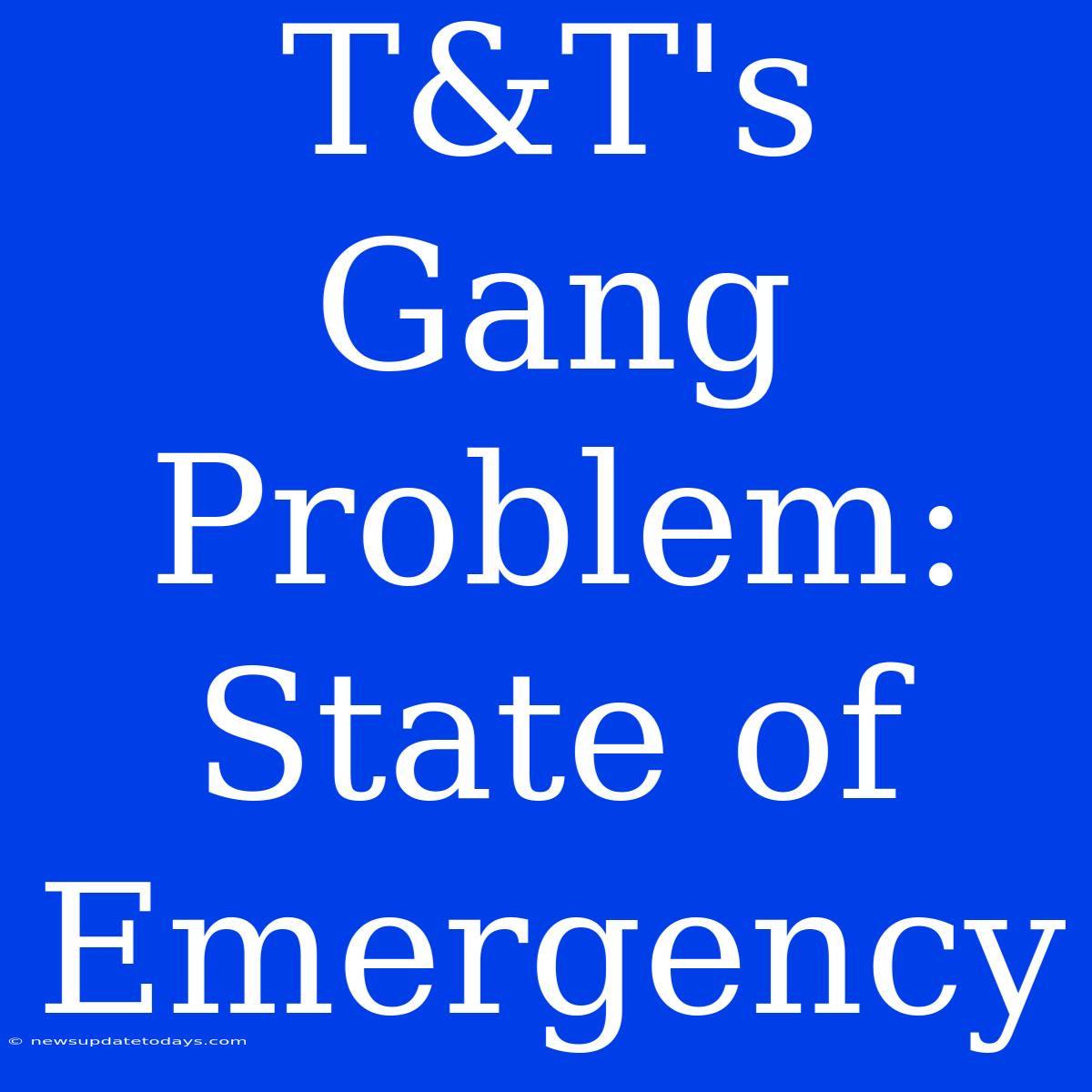Trinidad & Tobago's Gang Problem: A State of Emergency and Beyond
Trinidad and Tobago's escalating gang violence has reached a critical point, prompting the declaration of a State of Emergency (SOE). This isn't just a crime wave; it's a complex societal issue demanding a multi-faceted approach extending far beyond emergency measures. This article delves into the root causes of the problem, examines the effectiveness of the SOE, and explores potential long-term solutions.
Understanding the Root Causes: More Than Just Guns
The current crisis is not simply about the proliferation of firearms. While the easy access to weapons undeniably fuels the violence, deeper societal issues are at play:
-
Socioeconomic Disparity: Vast inequalities in wealth distribution create fertile ground for gang recruitment, particularly among marginalized youth lacking opportunities for education and employment. The lack of hope and viable alternatives contributes significantly to gang membership.
-
Lack of Educational Opportunities: A failing education system leaves many young people without the skills or qualifications needed to secure meaningful employment, pushing them towards criminal activity as a means of survival.
-
Weak Family Structures: Broken families and a lack of positive role models leave many vulnerable to gang influence and manipulation. The absence of strong family support systems contributes to a sense of alienation and disenfranchisement.
-
Corruption: Allegations of corruption within law enforcement and government institutions undermine public trust and hinder effective crime-fighting efforts. This breeds cynicism and fuels a sense of impunity among criminals.
The State of Emergency: A Necessary but Insufficient Measure
The SOE provides the government with extraordinary powers to curb gang activity, including increased police presence, curfews, and detention without charge. While it may offer a temporary reduction in violent crime, its long-term effectiveness is questionable without addressing the underlying issues. The SOE is, at best, a stop-gap measure – a bandage on a deep wound.
-
Concerns Regarding Human Rights: The increased police powers raise concerns about potential human rights violations, requiring careful monitoring and oversight. Balancing security with fundamental freedoms is crucial.
-
Long-Term Sustainability: The SOE is not a sustainable solution. Once lifted, the underlying problems remain, potentially leading to a resurgence of violence.
Towards Long-Term Solutions: A Holistic Approach
Addressing T&T's gang problem requires a comprehensive, long-term strategy focusing on several key areas:
-
Investing in Education and Job Creation: This includes improving the quality of education, providing vocational training, and creating job opportunities, especially in underserved communities.
-
Strengthening Family Support Systems: Providing resources and support to families at risk can help prevent youth from joining gangs.
-
Addressing Corruption: Combating corruption within law enforcement and government institutions is crucial to restoring public trust and improving the effectiveness of crime-fighting efforts.
-
Community Engagement: Involving communities in developing and implementing solutions is essential for fostering a sense of ownership and buy-in. This can include initiatives promoting youth leadership, conflict resolution, and restorative justice.
-
Comprehensive Gang Rehabilitation Programs: These programs need to address the psychological and social needs of gang members, providing opportunities for reintegration into society.
The declaration of a State of Emergency in Trinidad and Tobago is a stark reminder of the severity of the gang problem. However, the SOE alone is insufficient. Real and lasting change requires a holistic, long-term approach that tackles the root causes of the violence, invests in communities, and strengthens institutions. Only then can the nation hope to break the cycle of violence and build a safer, more prosperous future.

